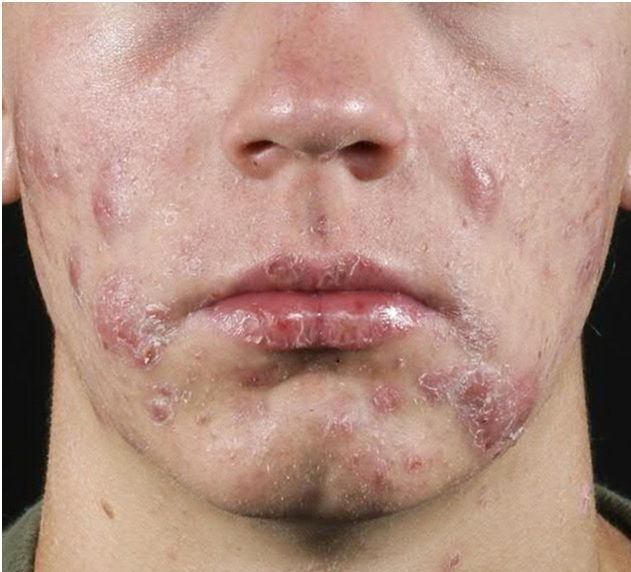Acne "The sign of puberty"
- deepak rajan

- Aug 29, 2020
- 2 min read
Acne Overview
Acne is a skin condition that occurs when your hair follicles become plugged with oil and dead skin cells. It often causes whiteheads, blackheads or pimples, and usually appears on the face, forehead, chest, upper back and shoulders. Acne is most common among teenagers, though it affects people of all ages.
Effective treatments are available, but acne can be persistent. The pimples and bumps heal slowly, and when one begins to go away, others seem to crop up.
Depending on its severity, acne can cause emotional distress and scar the skin. The earlier you start treatment, the lower your risk of such problems.
Causes
Four main factors cause acne:
· Excess oil production
· Hair follicles clogged by oil and dead skin cells
· Bacteria
· Excess activity of a type of hormone (androgens)
Symptoms
Acne signs and symptoms vary depending on the severity of your condition:
· Whiteheads (closed plugged pores)
· Blackheads (open plugged pores)
· Small red, tender bumps (papules)
· Pimples (pustules), which are papules with pus at their tips
· Large, solid, painful lumps beneath the surface of the skin (nodules)
· Painful, pus-filled lumps beneath the surface of the skin (cystic lesions)
Common Acne

Cystic Acne

When to see a doctor
If self-care remedies don't clear your acne, see your primary care doctor. He or she can prescribe stronger medications. If acne persists or is severe, you may want to seek medical treatment from a doctor who specializes in the skin (dermatologist).
For many women, acne can persist for decades, with flares common a week before menstruation. This type of acne tends to clear up without treatment in women who use contraceptives.
In older adults, a sudden onset of severe acne may signal an underlying disease requiring medical attention.
The Food and Drug Administration (FDA) warns that some popular nonprescription acne lotions, cleansers and other skin products can cause a serious reaction. This type of reaction is quite rare, so don't confuse it with the redness, irritation or itchiness where you've applied medications or products.
What to expect from a doctor
Will make a diagnosis of what type of acne you have
Advice on skin care
Specific treatment for type of acne you have
Treatment for Acne
Face cream and gel
Oral Tablets
Chemical peel
Skin injections




Comments